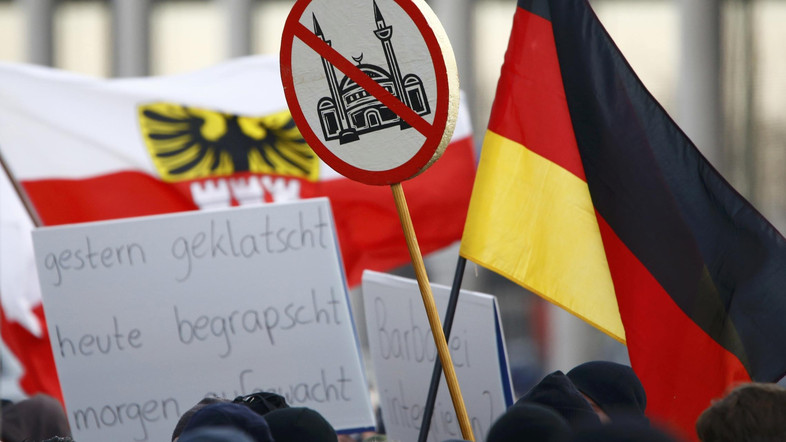Cairo-The recent growing Fundamentalism of the European far right and the consequent Islamophobia have been remarkably accompanied by rational European voices seeking to fight hatred and combat ideological and intellectual extremism in some powerful European countries.
In Germany, the photos of the racist, anti-Islam Pegida protests were spread worldwide. Many voices have opposed this movement, including the voice of Stefan Weidner, the German writer specialized in Arabic-German literature, who published a book “Anti-Pegida: A Polemic”.
In his book, Weidner presented a clear analysis for the “Pegida” movement and its ideology, and followed the steps of Edward Saeed in dissociating the western culture to reveal that anti-Islam is spread everywhere and not only in Pegida’s racist protesters. In the introduction, Weidner highlights an old fact, which is that anti-Islam or Islamophobia in Europe is not a new phenomenon, as it has existed since the Middle-Ages, in the Crusades wars’ era. But the kind of anti-Islam that we face today in Europe is a new phenomenon, particularly in Germany, where it has become a real problem. After the end of the cold war, Germans started to discriminate between Muslim, and non-Muslim immigrants, after realizing that those immigrants, mainly the Turkish, will stay in Germany and never return to their country.
Conservative politicians can’t see Germany other than a white, Christian country, which is the case of Pegida. Some consider the emergence of Pegida as linked to interior German reasons. But, in fact, this emergence came in line with global incidents, and precisely those occurring in the Islamic and Arabic world. Civil wars that flared up in countries like Syria, Iraq, and Libya, along with the flow of refugees led to the emergence of the racist Anti-Islamic movement.
In the first chapter of his book, the writer wonders whether the Germans are trying to blame Islam for their own problems especially that many now consider Islam as the reason behind several problems in the world, which is totally untrue.
Weidner also explains the naïve German, and perhaps European, perceptions of Islam that link all the religion’s problem to the Prophet (PBUH), and describe them as the bad basics of Islam with their racist comments.
We can suppose that this vision is based on a naïve perception of Islam that casts a blind eye on its diversity and richness, considering it as a one simple formula encapsulating the Islamic world.
The best part of Wiedner’s book is the objective confrontation of these generalizations, with a scientific, rational analysis to solve the delusive alleged conflict between the West and the Islamic religion. The writer notes that the combat of Islam-linked terrorism is a must that requires an approach that differs from the refugees’ problem and their integration.
Accordingly, both problems- terrorism and the failure of the integration process- are linked to different reasons, the former a political problem, while the latter a social one.
In the third chapter, the German writer discusses the problematic of the intellectual resources of Pigeda, saying that this fake conflict on Islam is being manipulated by the media, poisoning the social entourage and pushing the Europeans to take a negative position from Muslims.
In fact, a number of historians and analysts said that the incidents of 9/11 were behind the emergence of Islamophobia.
The fear of Islam in the West is based on a defensive position, and an irrational panic from an Islamic invasion in the world. It is also results from overestimating the influence of Islam and marginalizing the Western control in the fields of politics, economy, and science.
The ideas promoted by Pegida are spread in different domains among the German people, in media, politics, and cultural environments. People here wonder: where do Islamic and Arab intellectuals, writers and universities stand in all this? Why do they always stay in the line of defense instead of fixing the negative image of Islam?
In his book, Wiedner concludes that the people who really aim to confront Pegida should oppose the ideology that supports it. They should analyse the pretexts on which this ideology is based, and stand against the negative image of Islam in this neoliberal system.
